Carol Dweck’s excellent book on Mindset shows us that there are two dominant mindsets that people choose to believe of themselves and about learning and growth. Anyone, who is involved in any learning and growth, will recognise these two mindsets. The diagram here represents the two types of mindsets, and I’ll sure you’ll recognise the attitudes of many people you know. Download the Learning to Learn Workbook here Growth Mindset Let’s first take a look at the Growth Mindset: Individuals who hold the Growth Mindset believe that intelligence can be and is developed that the brain is like a muscle that can be trained. With this belief is the desire to improve. To improve, firstly you embrace challenges, because you know that overcoming challenges makes you stronger. No matter what you decide to do, there will be obstacles. For the growth mindset believer, external setbacks do not discourage you. Your self-esteem and self-image are not tied to how you look to others or your success. You see failure as the best opportunity to learn. Thus, either way, you win. You don't see the effort as something useless to be avoided but as necessary to grow and master useful skills. No-one truly enjoys criticism or negative feedback, but the Growth Mindset individual integrates feedback that has genuine worth as an opportunity to change and learn. Negative feedback is not seen as a personal attack, but for what it is; feedback. The success of others is seen as a source of inspiration and information. To Growth Mindset individuals, success is not seen as a zero-sum game. Growth Mindset individuals will improve because of this, and this creates positive feedback loops that encourage them to keep learning, growing and improving. Fixed Mindset Let’s have a look at the Fixed Mindset side: Those, who hold these beliefs, think “they are the way they are”. This doesn't mean that they have any less desire for a positive self-image than anyone else, and they do want to perform well and look smart. But, to achieve these goals... Challenge is hard, and success is not assured, so rather than risk failing and negatively impacting their self-image, they will often avoid challenges and stick to what they know they can do well. Obstacles face everyone but the difference with the Fixed Mindset individual is that obstacles are seen as external forces that get in the way and are either avoided (leading to sub-optimal results and usually, blaming others) or are the 'excuse' for giving up. When effort is required, and your view is that effort is unpleasant and rarely pays dividends... what's the point in exerting that effort? The smart thing, to do then, is avoid as much effort as possible. Negative feedback tends to be ignored because the Fixed Mindset leads you to believe that any criticism of your capabilities is criticism of you. This is discouraging to the people who are giving you feedback and after a while, they stop giving any negative feedback, further isolating the person from external influences that could generate some change. Other's success is used as a benchmark to beat yourself with. Success, in this worldview, is put down to luck or unprincipled actions. Some will go further and deride another person's success finding juicy gossip to attach to them when their success is being lauded by anyone else. The result is that they don't reach their full potential, and their beliefs feed on themselves: They don't change or improve much with time, if at all, and so to them this confirms “they are as they are”. Download the Learning to Learn Workbook here
Joy@Work Podcast
Helping marketplace leaders #UnStuck their true potential to thrive in life and leadership to build a successful, sustainable business with collaborative, high performance teams and Joy@Work with practical, neuroscience-based AdvantEdge Guides and coaching.
Helping marketplace leaders #UnStuck their true potential to thrive in life and leadership to build a successful, sustainable business with collaborative, high performance teams and Joy@Work with practical, neuroscience-based AdvantEdge Guides and coaching.Listen on
Substack App
RSS Feed
Recent Episodes





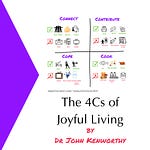



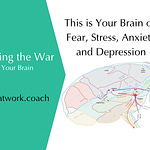
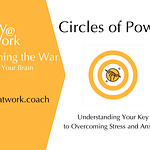
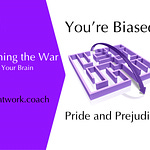
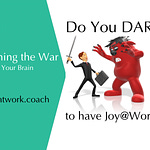
Share this post